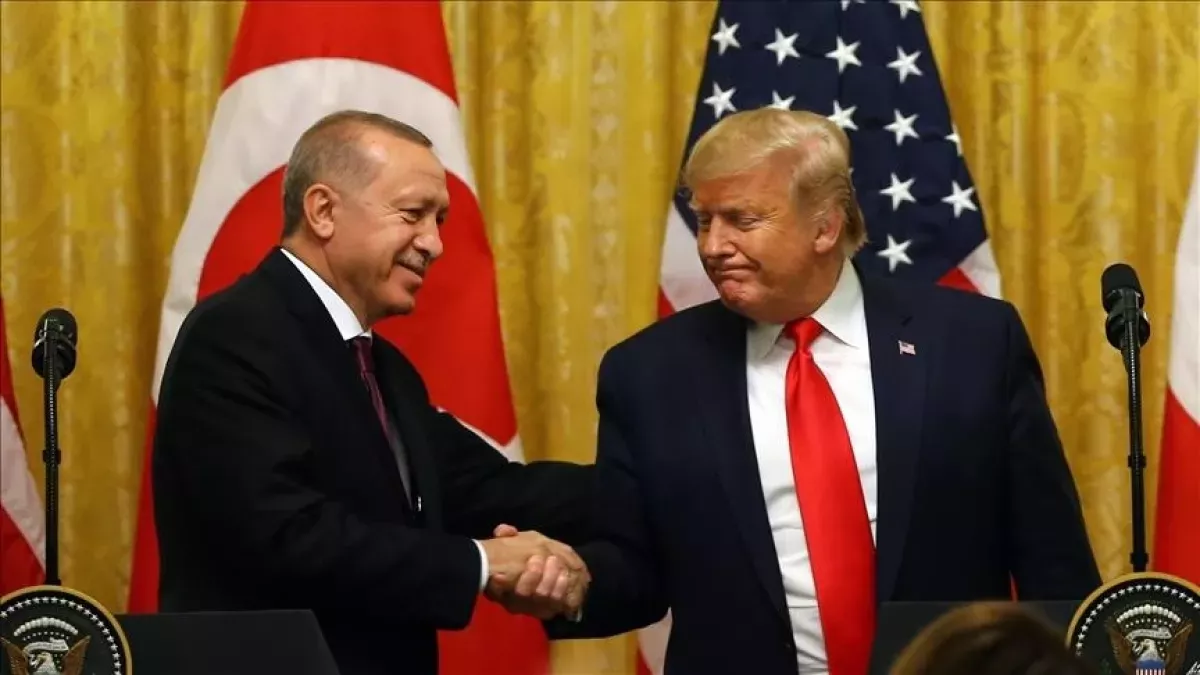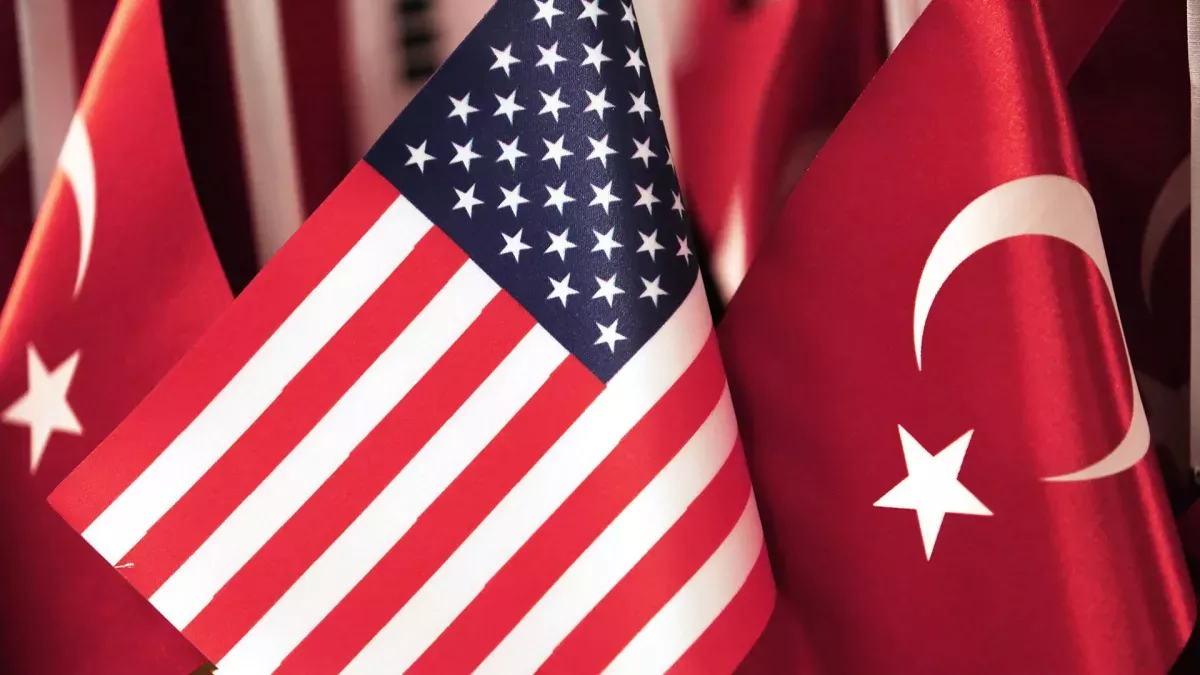Washington and Ankara are seeking a win-win formula What’s at stake in the Erdoğan–Trump talks
One of the key events of this week is the visit of the President of fraternal Türkiye, Recep Tayyip Erdoğan, to the United States, where the Turkish leader not only participated in the 80th session of the UN General Assembly in New York but will also hold talks with President Donald Trump at the White House on September 25. This is a landmark event, as the previous Democratic administration had consistently avoided cooperation and high-level negotiations with Ankara. However, the new, more flexible policy of Trump has made possible what seemed unthinkable just a year ago.
Speaking about the upcoming meeting, Turkish Vice President Cevdet Yılmaz noted in particular: “President Recep Tayyip Erdoğan, who today is one of the most experienced leaders on the world stage, is known for his principled stance in foreign policy, a policy based on national interests, and an approach aimed at mutual benefit with his partners. The agenda between Türkiye and the United States covers a wide range of issues, from long-discussed matters of the defence industry and trade to investments and regional stability. We hope that the upcoming meeting will lead to decisions that will be beneficial for both countries and contribute to regional peace.”
Meanwhile, the Turkish press reports on the extensive preparations that preceded the upcoming high-level talks. As early as last week, information emerged that the sides were negotiating contentious issues with the mediation of lobbying groups.
According to media reports, Erdoğan held a private meeting with Trump’s son at the Dolmabahçe Palace. The Turkish presidential administration did not deny these claims. Moreover, an unnamed Turkish source confirmed that the meeting was a “courtesy visit.” Although Donald Trump Jr. holds no official position in his father’s administration, he wields significant influence in the White House. Currently, Eric Trump serves as Executive Vice President of the Trump Organisation. He previously visited Türkiye in 2016 on business matters, including a joint project with Trump Towers in Istanbul.

President Erdoğan posted on social media that in his meeting with Trump, they would discuss “primarily trade, investments, and the defence industry,” and that the upcoming talks “will contribute to ending wars and conflicts in our region.”
Meanwhile, Trump wrote that he plans to discuss with Erdoğan the sale of F-16 and F-35 fighter jets to Türkiye, as well as Boeing aircraft. Business circles in Istanbul report that during his visit to Türkiye, Eric Trump explored the possibility of major American investments in the country, primarily in real estate and the mining industry.
Turkish media note that the most complex issue in the bilateral relationship is Syria. According to Ankara, Washington should send a clear signal that it wants to see Syria unified and free from external interference. However, the presidents will likely sidestep this topic, as Donald Trump is primarily focused on economic and financial matters.
As the American president noted in his statement, the main topic of discussion will be aviation contracts: Türkiye needs to procure modern military technologies for both short-term and long-term purposes. Of particular importance is the acquisition of F110 engines and GE Aerospace F404 engines for the prospective Turkish combat aircraft Kaan and Hurjet. The U.S. government is expected to approve this request.
The most significant issue regarding arms procurement is Türkiye’s acquisition of the latest F-35 fighter jets. In 2019, Trump excluded Türkiye from the F-35 program, offering instead the latest F-16 Block 70 as an alternative, offset against funds already paid, with the possibility of returning to the F-35 program later. The presidents of Türkiye and the United States are expected to spend most of their time discussing this matter.

Speaking about the upcoming Erdoğan–Trump meeting, military analyst and professor Ali Fuat Gökçe noted that acquiring these combat aircraft requires new Congressional approval. “This has been hindered by CAATSA (‘Countering America’s Adversaries Through Sanctions Act’) restrictions related to the purchase of F-35s and, particularly, F-16s. Lifting CAATSA sanctions is required for the F-35. This is in Trump’s hands, as he has a majority in both the House of Representatives and the Senate. This issue could be resolved if he says, ‘Let’s do it,’ and I believe this could happen during this meeting,” Gökçe stated.
The two countries are also set to sign several contracts in civil aviation. The purchase of Boeing aircraft by Turkish Airlines has been under discussion for at least two years. Turkish Airlines CEO Ahmet Bolat confirmed these plans in the spring of last year. Earlier, in December 2023, Turkish Airlines placed the largest order in its history for 355 aircraft with the European company Airbus. Following this, Türkiye began negotiations with the Americans.
Erdoğan last visited the White House in 2019, during Trump’s first presidential term. In 2019, Türkiye acquired Russian S-400 surface-to-air missile systems, prompting Washington to cancel the sale of F-35 aircraft to the country and exclude Ankara from the programme, despite funds already paid.
On the other hand, the emerging rapprochement between Türkiye and the United States has raised concerns in Greece. According to Greek media, Athens is worried that Donald Trump will meet with the Turkish president, while Greek Prime Minister Kyriakos Mitsotakis cannot expect similar attention from the American side. The Greeks are also deeply concerned about the potential revival of the F-35 deal, which would further strengthen Türkiye’s dominance in the Aegean and Eastern Mediterranean.
Predicting the outcome of the Erdoğan–Trump meeting is not easy. However, given the authority of the Republic of Türkiye, the statement by Sabah newspaper columnist Bercan Tutar seems well-founded: “The United States sees the real power of Türkiye, and restoring American influence in the Middle East depends on cooperation with Ankara.”








